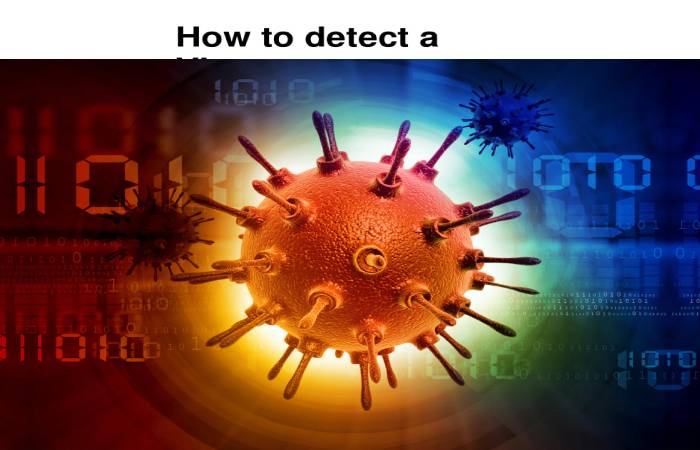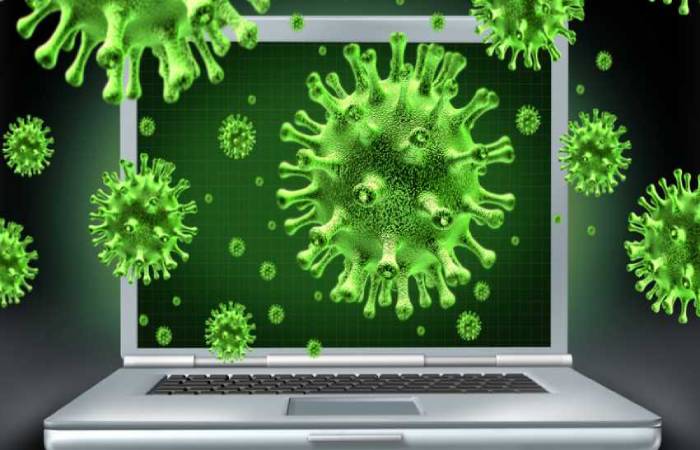Table of Contents
Computer Viruses Definition
Computer viruses are programs created to infect your PC or computer, and they can also be so dangerous that some are capable of stealing the information that store in it.
In addition to contaminating everything in its path, rendering the files practically unusable. It will not only damage the software on your PC but the hardware could also be affected.
Computer viruses are encrypted programs created by people or programmers to cause both material and economic damage to primary organizations.
Although there are also people who make viruses for academic purposes, the difference is that they never publish them, preventing users from harming themselves.
In addition, the latter work continuously in the development of antivirus that will prevent a malicious program from infecting your computer. As is the case with Microsoft’s download support, several antivirus programs will prevent your PC from contracting one.
How to Detect a Computer Viruses?

Any PC can contract malicious software. It also knows since these find on download pages, infected links, or simply by entering into contact by incorporating a mass storage unit better known as a Pendrive.
Therefore, it is imperative to be aware of the signs that will tell you that your computer infects a virus, so pay close attention.
1. The Speed of your Computer
- The first thing you should evaluate is whether the speed with which your PC responds is changing since when any virus infects a computer, it usually takes time to respond.
- That is, it slows down. Although there are many other reasons why your laptop could be slow, viruses are the main culprits.
2. Error Messages
- Error messages on computers should always raise the alarm since some problems generate within the computers.
- So if you see that your PC indicates an error when turning off or on, it is appropriate to carry out an analysis or look for a specialist to do it. Since if it is not a virus, maybe some software or hardware problem is presenting.
3. Evaluate the Files on your Computer
- Another way to determine if your PC infects with a virus is by checking the status of the files.
- It would be best to evaluate whether there are recent files or whether the extension of the documents is modified.
- If so, be sure that there is a malicious program on your computer.
- It should note that in that case, you could quarantine the viruses on your PC. Thus avoiding losing the documents and files that are in it.
4. Antivirus
- Finally, another method to know if a computer virus has infected your computer is by analyzing it with an antivirus.
- They also carry out a complete analysis, scanning all the programs. And software found on the computer and determining the status.
How to Fight Computer Viruses?

- There is only one way to do it to combat a computer virus: installing antivirus software on the computer. Since these programs are the only ones that can detect and eliminate viruses circulating on the Web in time.
- In this case, it will be helpful to know which are the best free antivirus for PC; this was,y you will install the model or version that best suits you according to the activities you carry out daily on your computer.
- However, some tips applying them continuously will help you prevent your computer from being infected with these problematic viruses.
- The first thing is that you must be careful with what you download on the networks since many infected files with false names circulate there.
- Similarly, never accept contact files that you do not know, and if you notice that when you enter a Web page. It tells you that it is not a safe place or place. Automatically close the tab.
Conclusion
A computer virus is a type of computer program that, when executed, replicates itself by modifying other computer programs and inserting its code.
If this replication succeeds, the affected areas are “infected” with a computer virus.
Computer viruses generally require a host program. The virus writes its code into the host program. When the program runs, the reported virus program executes first, causing infection and damage.
A computer worm does not need a host program, as it is an independent program or code chunk. Therefore, it not restricted by the host program but can run independently and actively carry out attacks.
Also read: Qoruv.com Pioneering Firm: Shaping the Future of Marketing

